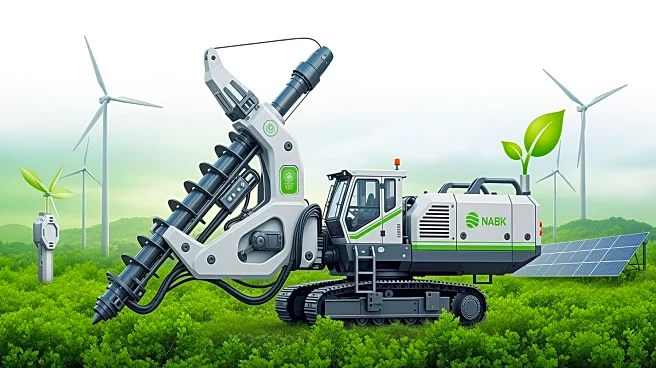What's Happening?
Torchlight Innovations Inc., operating as RZOLV Technologies, has begun trading on the TSX Venture Exchange under the symbol RZL. The company introduces a non-toxic, water-based alternative to traditional
cyanide and smelting processes in mining. This innovation aims to reduce environmental impact while maintaining cost and performance efficiency. RZOLV's technology has been validated by SGS Labs, showing over 90% gold recovery from gravity concentrates within 72 hours. The company is conducting a 100-tonne pilot test in Arizona to confirm the scalability and commercial viability of its process. RZOLV's approach also extends to extracting critical and rare-earth elements, potentially impacting the critical-minerals and rare earth sectors.
Why It's Important?
The introduction of RZOLV Technologies' non-toxic mining solution addresses significant environmental concerns associated with traditional mining methods, particularly the use of sodium cyanide. This development could lead to more sustainable mining practices, reducing the industry's environmental footprint and potentially lowering costs associated with shipping and processing. The technology's ability to extract critical and rare-earth elements positions RZOLV as a key player in the growing market for these materials, which are essential for various high-tech and clean energy applications. The success of this initiative could influence regulatory policies and encourage further innovation in eco-friendly mining technologies.
What's Next?
RZOLV Technologies plans to continue its pilot testing in Arizona to validate its technology's commercial viability. The company will also ring the opening bell at the Toronto Stock Exchange to commemorate its recent listing. As the technology gains traction, it may attract interest from mining companies looking to adopt more sustainable practices. Regulatory bodies might also take note, potentially leading to changes in mining regulations to favor environmentally friendly technologies. The success of RZOLV's pilot tests could pave the way for broader adoption and further development of its technology.









